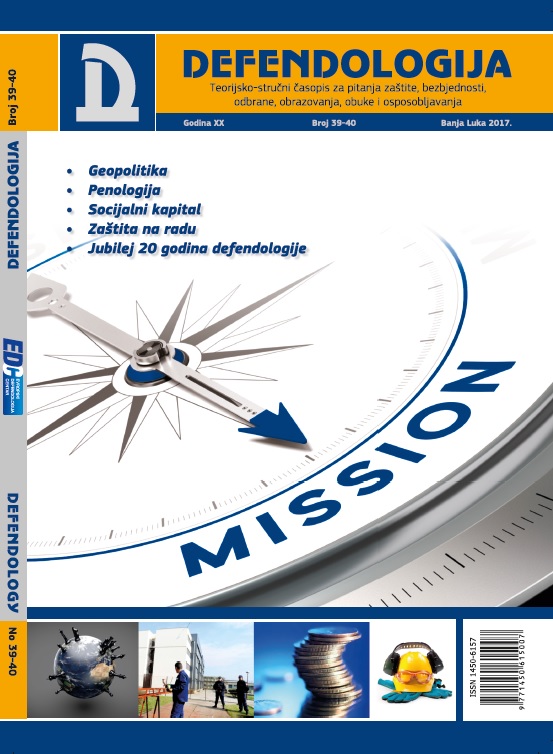SOCIAL CAPITAL AND POLITICS: FROM LOSING TRUST IN INSTITUTIONS TO CREATING A WELLBEING SOCIETY
DOI:
https://doi.org/10.7251/DEFEN1740003KAbstract
Social capital is an important factor in the society’s economic, political, and
societal development. Societies/communities high in social capital are well organized
and they gain their interest or profi t through interest groups, and organized and well-networked
communities are deemed to be a very effective mechanism for controlling powers.
This proves that social capital, as one of the most signifi cant factors, contributes to the
stability of society, its economic prosperity, and political effi ciency. From the standpoint
of affi rmation, it is the path that almost certainly leads to a prosperous society. On the
other hand, societies low in social capital have less developmental opportunities, which
may to a signifi cant extent affect the functionality of the community at large. The concept
of social capital comprises three main components: trust, networks, and norms. Political
effectiveness of the society can be measured through social trust, and political effi ciency
is a necessary condition of high levels of social trust in the community. Contemporary
societies are characterized by an increasing atomization of individuals, having an impact
on citizen participation in civil and political processes, and consequently on the levels of
trust in institutions. This paper attempts to determine the relation between social capital
and politics, in other words, to identifying some of the leading causes of the loss of institutional
trust. It discusses the importance of social policy regarding social capital within
the framework of the public policy of society, and the measures that strengthen the wellbeing
of society.
